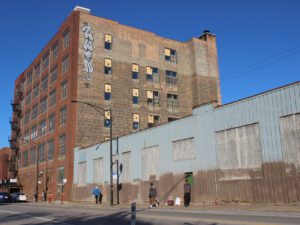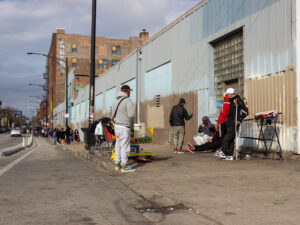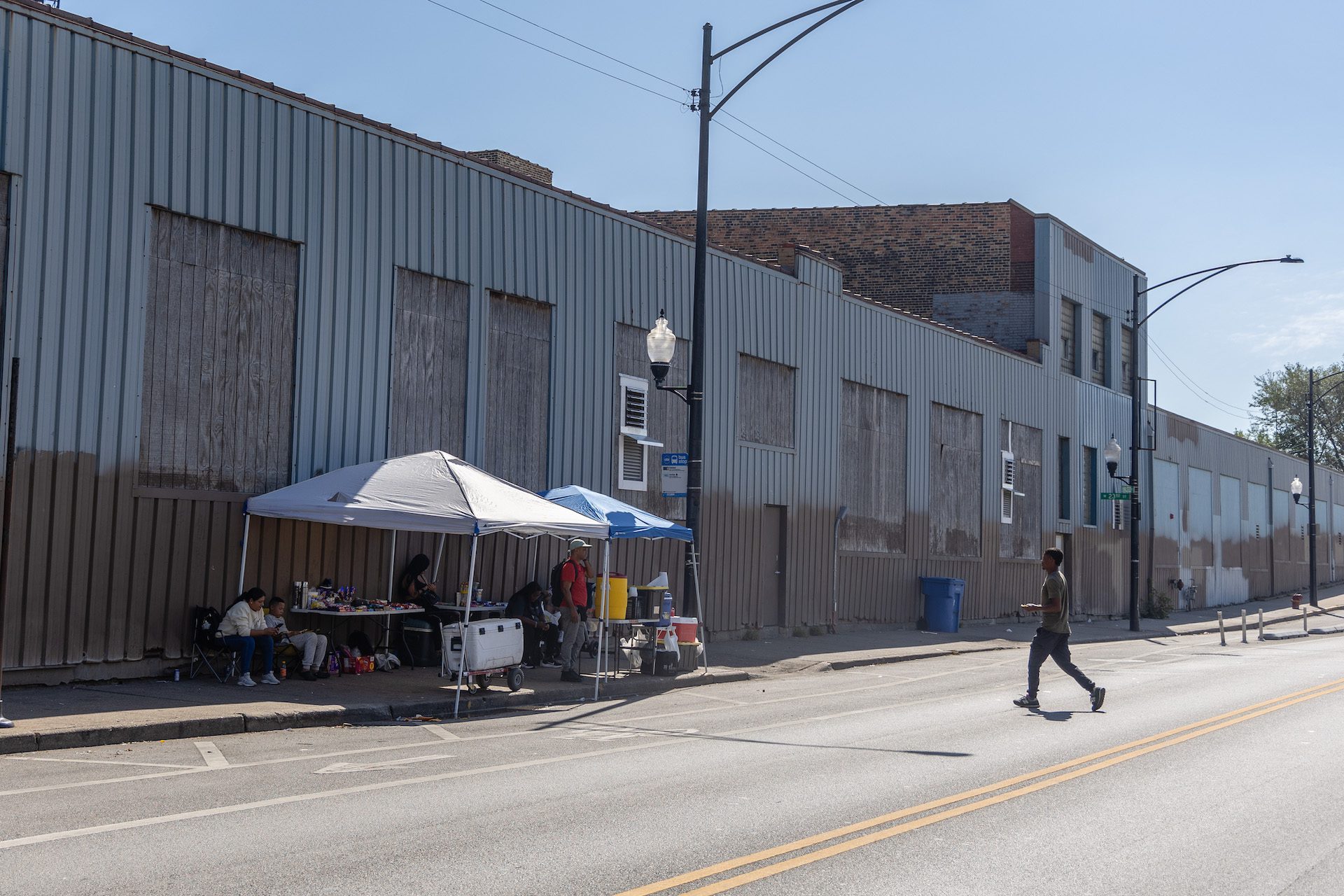 Oscar Gomez/Borderless Magazine
Oscar Gomez/Borderless MagazineCity officials’ decision to consolidate city-run migrant shelters comes as the number of residents has dwindled and fewer asylum seekers are arriving in Chicago.
Chicago has closed two more migrant shelters, including the largest facility on the city’s Lower West Side, where a five-year-old boy died of Sepsis last year.
The decision to consolidate city-run facilities, known as the One System Initiative, comes as the number of residents has dwindled and fewer asylum seekers are arriving in Chicago.
The shelter in Pilsen, at 2241 S. Halsted St., once housed over 2,300 migrants, and the Ogden facility, at 344 N. Ogden Ave., was officially closed by Tuesday. According to city officials, a third facility, Lakeshore Shelter, will close its doors by Oct. 24.
Want to receive stories like this in your inbox every week?
Sign up for our free newsletter.

In an email statement, Brian Berg, Director of Public Affairs at the Chicago Department of Family and Support Services, said shelter residents would be offered placement in other city-run shelters, ensuring continuity of care and services.
“The City is coordinating with Chicago Public Schools, Chicago Department of Public Health, State and County partners, and wrap-around service partners to minimize disruptions to impacted families and ensure continuity of care,” Berg said.
On Monday morning, vendors selling food outside the Pilsen shelter said the facility had been emptied over the last week. By Sunday, the remaining residents were relocated to other shelters, including Super 8, a property formerly used by the U.S. Marine Corp in the North Side and a building in West Town, according to vendors and migrants who spoke to Borderless Magazine.
Jose Gregorio Garcia, who arrived from Venezuela in December and now sells food and drinks outside the shelter, said: “buses have been arriving in the back of the shelter to pick up migrants over the last couple of weeks.”
Another vendor, who is also a former resident of the Pilsen shelter, said the migrants were “forced” out of the shelter and bused away.
Read More of Our Coverage
The Pilsen shelter, located in a former industrial warehouse, opened in early Oct. 2023 and became a flashpoint in the city’s struggle to house thousands of migrants being bused and flown from Republican-led states in the Southern border.
Last December, Borderless Magazine was the first to report concerns about overcrowding, mistreatment from staff, unsanitary conditions, and lack of access to proper food and medical services. Three days later, 5-year-old Jean Carlos Martínez Rivero died from sepsis on Dec. 17, 2023.
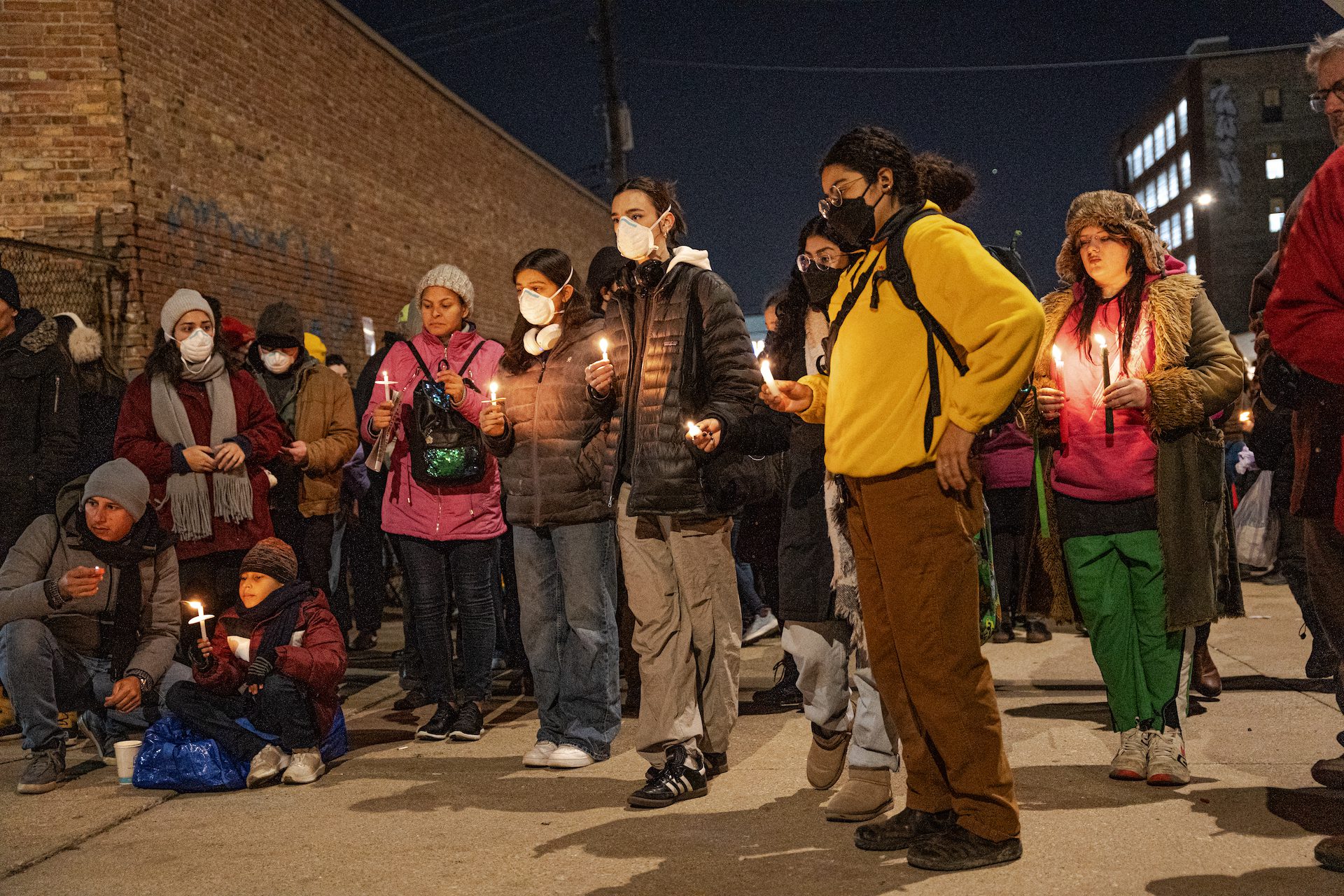
“There is no medicine,” one woman told Borderless in mid-December, just days before Jean Carlos’ death. “For those who aren’t working, we are out on the street asking for help to buy medicine.”
His death drew public attention to the poor conditions within the shelter. Following the boy’s death, Mayor Brandon Johnson’s administration pledged to make changes that include expanding health screenings and vaccinations, working with food providers to improve food quality, remediating sewage pipes, adding water bottle filter stations and heat and smoke detection systems to the shelter.
A second Borderless investigation found that city officials ignored early warnings and calls to improve conditions at the shelter.
Read More of Our Coverage
In March, the Centers for Disease and Control were dispatched to support Chicago’s Department of Public Health during a measles outbreak at the shelter in Pilsen. The following month, there were also confirmed cases of tuberculosis.
Berg did not respond to questions on whether the death, allegations of mistreatment, and health concerns contributed to the shelters’ closing.
Diana, who arrived from Venezuela in December 2023, was bused from the Pilsen shelter to the Super 8 shelter about three weeks ago. She said the city notified them that they would be closing it down about a week before they relocated her, but they did not provide an explanation.
Despite concerns about the Pilsen shelter, she said she had no complaints about it or its staff. “I heard people were not happy about [the Pilsen shelter], but given the circumstances, we were good,” said Diana. “We had a roof over our head and food.”
At Super 8, she shares a room with seven other people, including her daughter and husband.
On Monday morning, Junior Jose Quero Quero, an immigrant from Venezuela, said he had been staying in the Pilsen shelter up until four months ago for about six months. He recalls it being in a good condition with running air conditioning. “If I end up in a shelter again, I want it to be there,” he said.
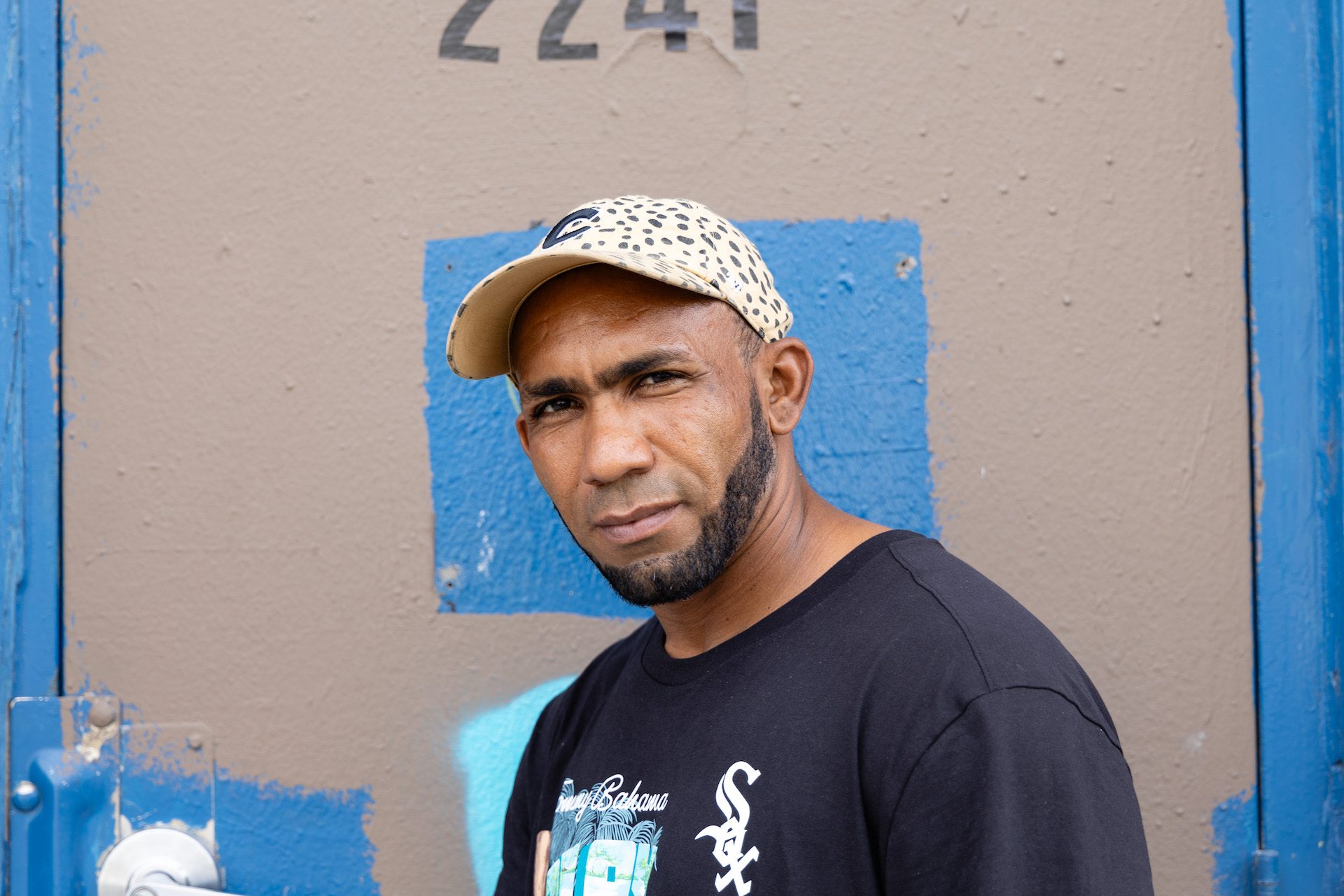
During a peak of new arrivals, Chicago had nearly 30 migrant shelters with nearly 15,000 residents throughout the city.
About 5,317 residents live in 16 active city- and state-run shelters, with over 2,300 available beds as of late September, according to the city.
Fatema Hosseini is a Roy W. Howard Investigative Reporting fellow covering immigrant communities for Borderless Magazine. Send her an email at [email protected]
Aydali Campa is a Report for America corps member and covers environmental justice and immigrant communities for Borderless Magazine. Send her an email at [email protected].

Bring power to immigrant voices!
Our work is made possible thanks to donations from people like you. Support high-quality reporting by making a tax-deductible donation today.

